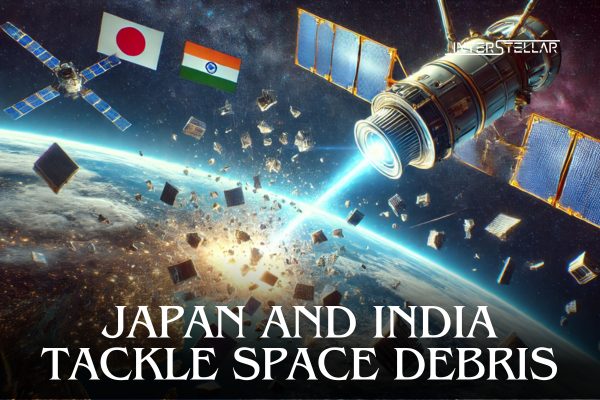Japan and India Collaborate on Space Junk Removal Using Lasers
Space startups from Japan and India announced on Tuesday a joint initiative to tackle orbital debris using laser-equipped satellites. The partnership addresses the growing issue of space congestion as Earth’s orbit becomes increasingly crowded.
Innovative Solutions for Orbital Debris
Tokyo-based Orbital Lasers and Indian robotics firm InspeCity will explore business opportunities for in-space services. These include de-orbiting inactive satellites and extending the lifespan of operational spacecraft.
Orbital Lasers, a spin-off from Japanese satellite leader SKY Perfect JSAT, is developing a system to stabilise space junk. The technology uses laser energy to vaporise small surface areas of debris, halting its rotation. This stabilisation makes it easier for servicing spacecraft to intercept and de-orbit the junk.
Aditya Baraskar, Orbital Lasers’ global business lead, said the system will be demonstrated in space and made available to satellite operators by 2027. If regulatory approvals are met in India and Japan, the system could be mounted on InspeCity satellites.
Growing Investment and Future Goals
InspeCity, founded in 2022, secured $1.5 million in funding last year, while Orbital Lasers has raised 900 million yen ($5.8 million) since its launch in January. The companies recently signed a preliminary agreement to formalise their collaboration.
This partnership reflects increasing global urgency to manage space traffic. In October, a United Nations panel stressed the need for immediate action to track and control objects in low Earth orbit due to the rapid rise in satellites and debris.
Expanding Japan-India Space Collaboration
The project highlights deepening space ties between India and Japan. The countries are already working on the Lunar Polar Exploration (LUPEX) mission, expected to launch as early as 2026. Indian rocket manufacturer Skyroot and satellite builder HEX20 are also partnering with Japanese firm ispace on a future lunar orbiter mission.
Masayasu Ishida, CEO of Tokyo-based nonprofit SPACETIDE, noted that Japan’s satellite solutions for India’s disaster management and agriculture have paved the way for broader collaboration. Ishida emphasised the importance of complementary relationships aligning with national initiatives like Make in India, which aims to boost domestic production.
“The key is finding where and how to build complementary relationships,” Ishida said, suggesting opportunities in manufacturing and advanced space technologies.
The increasing number of commercial space tie-ups signals a new era of cooperation between Japan and India, addressing critical challenges like orbital debris while fostering innovation in space services.
With inputs from Reuters





